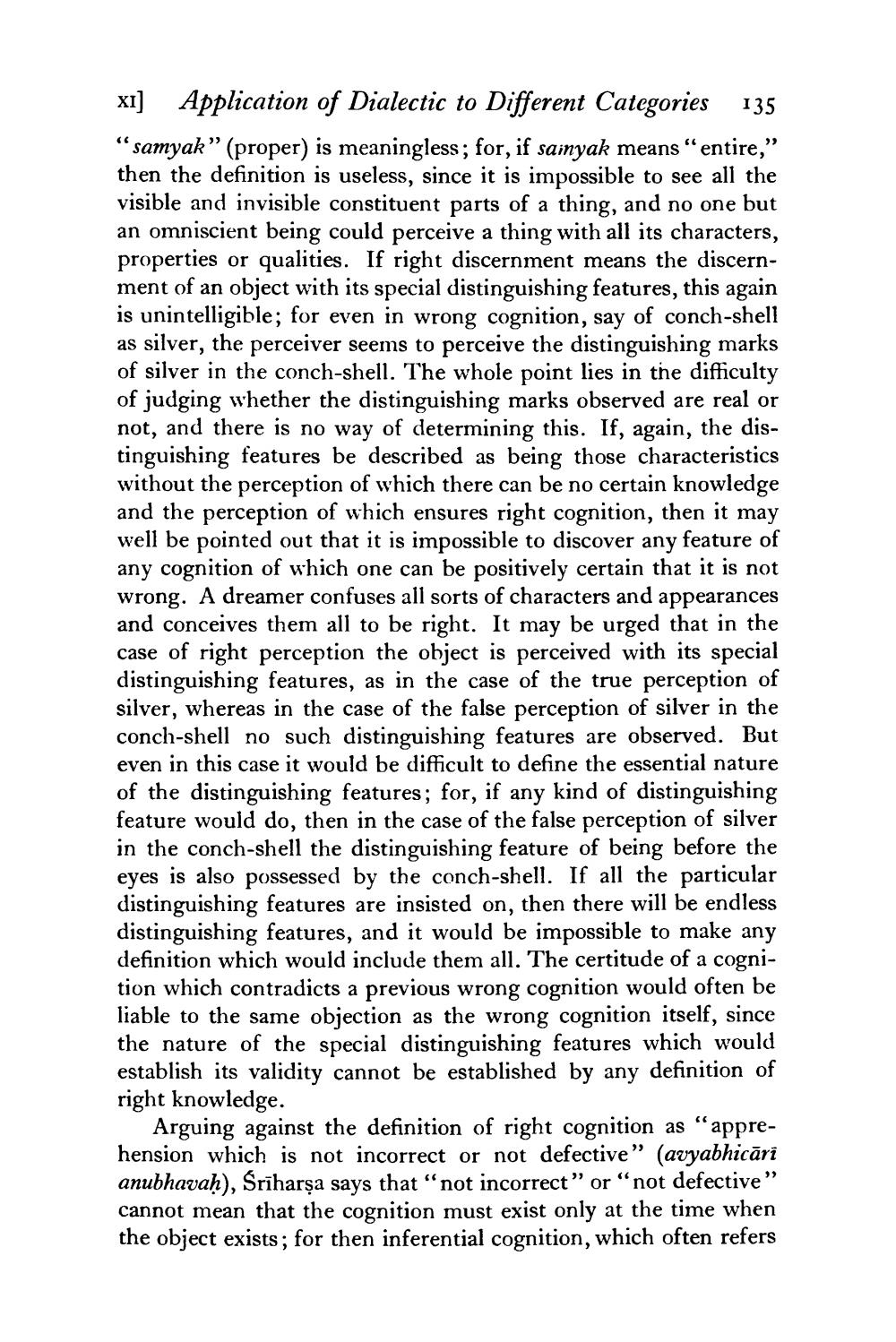________________
XI] Application of Dialectic to Different Categories 135 "samyak” (proper) is meaningless; for, if sainyak means “entire," then the definition is useless, since it is impossible to see all the visible and invisible constituent parts of a thing, and no one but an omniscient being could perceive a thing with all its characters, properties or qualities. If right discernment means the discernment of an object with its special distinguishing features, this again is unintelligible; for even in wrong cognition, say of conch-shell as silver, the perceiver seems to perceive the distinguishing marks of silver in the conch-shell. The whole point lies in the difficulty of judging whether the distinguishing marks observed are real or not, and there is no way of determining this. If, again, the distinguishing features be described as being those characteristics without the perception of which there can be no certain knowledge and the perception of which ensures right cognition, then it may well be pointed out that it is impossible to discover any feature of any cognition of which one can be positively certain that it is not wrong. A dreamer confuses all sorts of characters and appearances and conceives them all to be right. It may be urged that in the case of right perception the object is perceived with its special distinguishing features, as in the case of the true perception of silver, whereas in the case of the false perception of silver in the conch-shell no such distinguishing features are observed. But even in this case it would be difficult to define the essential nature of the distinguishing features; for, if any kind of distinguishing feature would do, then in the case of the false perception of silver in the conch-shell the distinguishing feature of being before the eyes is also possessed by the conch-shell. If all the particular distinguishing features are insisted on, then there will be endless distinguishing features, and it would be impossible to make any definition which would include them all. The certitude of a cognition which contradicts a previous wrong cognition would often be liable to the same objection as the wrong cognition itself, since the nature of the special distinguishing features which would establish its validity cannot be established by any definition of right knowledge.
Arguing against the definition of right cognition as “apprehension which is not incorrect or not defective" (avyabhicāri anubhavaḥ), Srīharșa says that "not incorrect” or “not defective” cannot mean that the cognition must exist only at the time when the object exists; for then inferential cognition, which often refers




